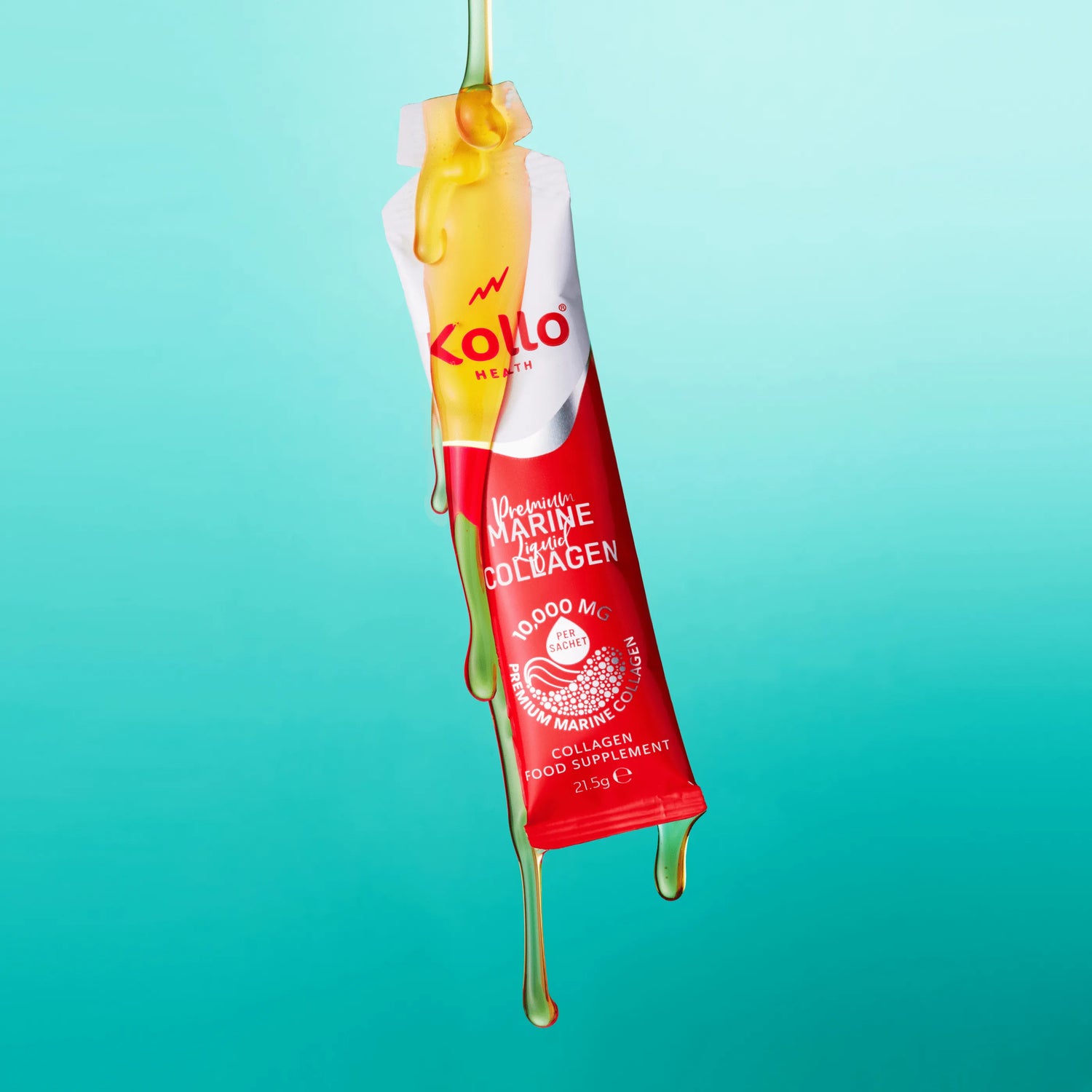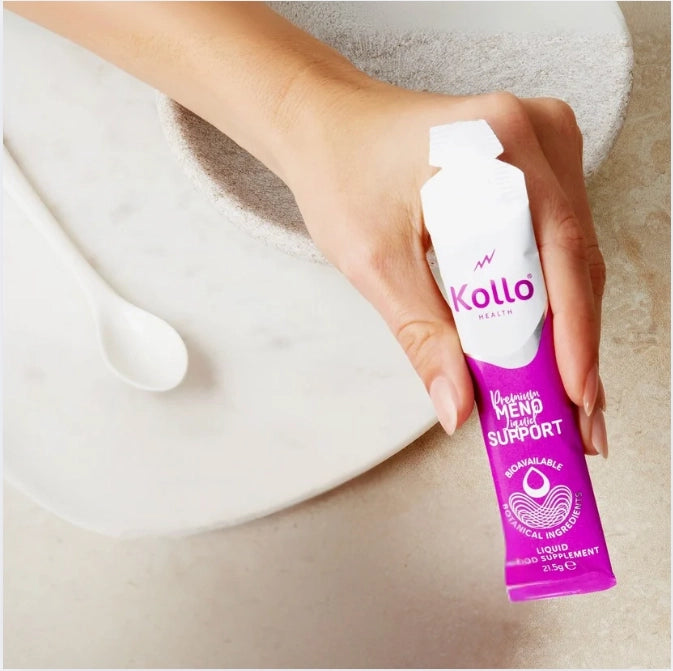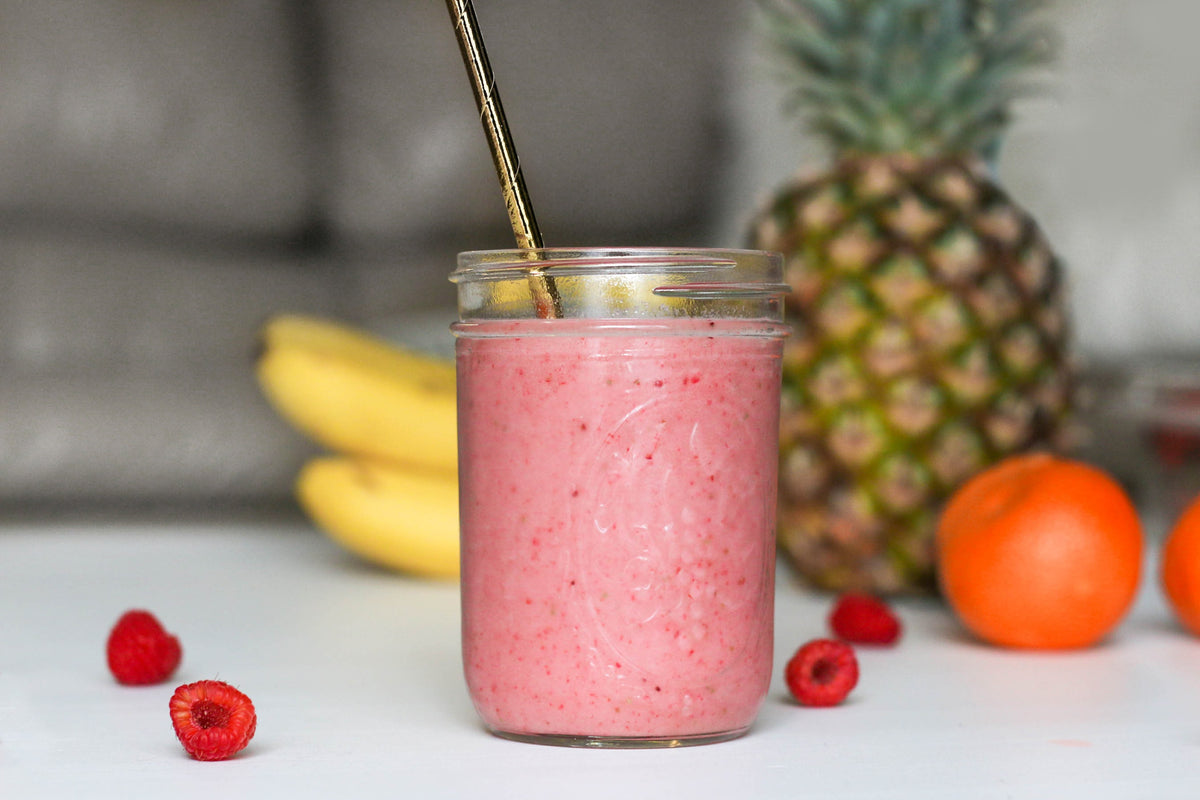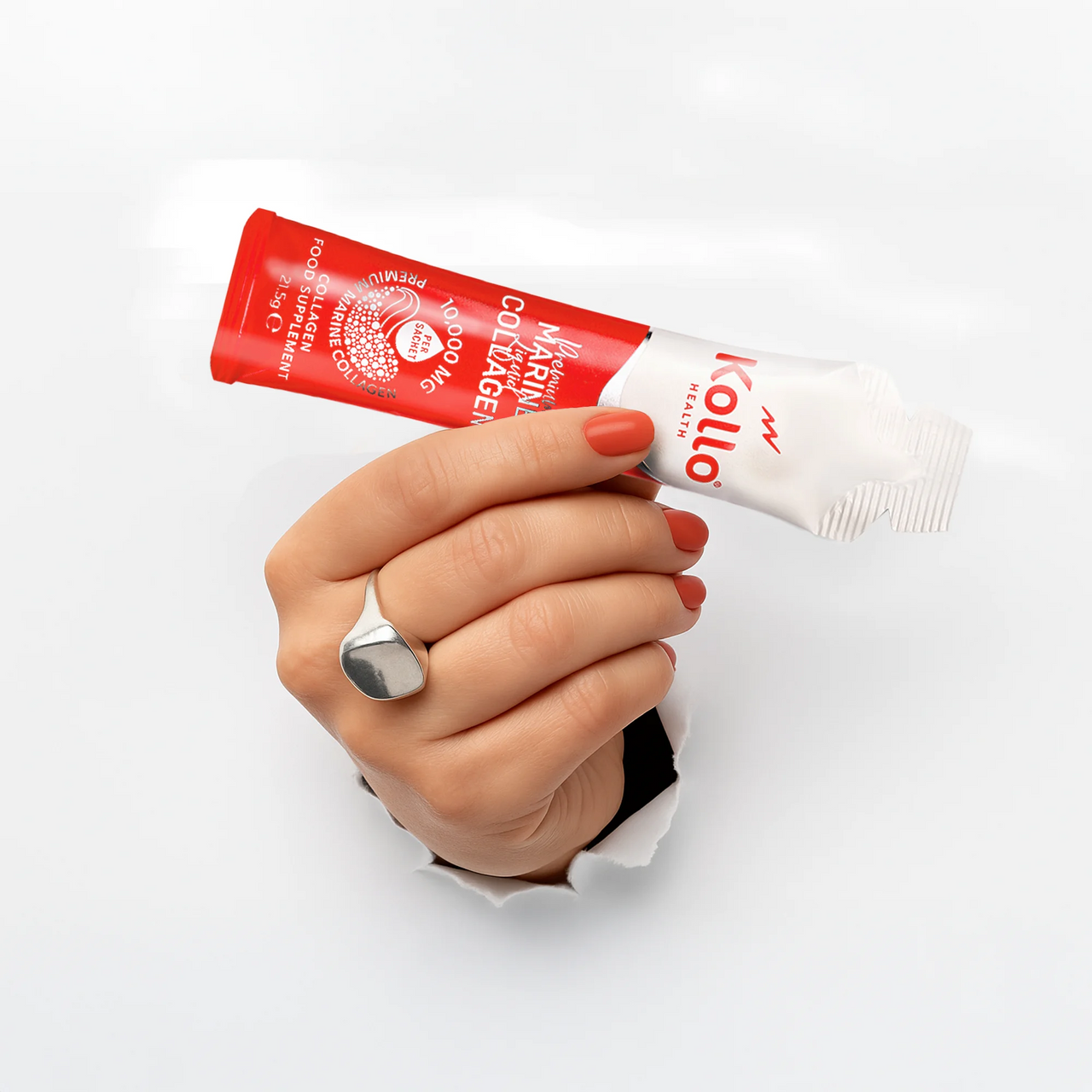The popularity of collagen supplements is increasing. But many people are still uncertain if it is safe to take marine collagen, so read on to learn everything you need to know.
Did you know that collagen makes up 25% - 35% of the protein mass in your body? It is the most abundant protein in your skin, muscles, connective tissues, nails, joints, bones, corneas, blood vessels, and teeth. The body has a natural ability to produce collagen, making it a non-vegan compound.
Among the most sought-after forms is marine collagen, whose popularity has been growing over the years. You might be wondering what marine collagen is, why it is so special, and whether it is safe to take. Read on to find answers.
What Is Collagen?
Collagen is one of the oldest health foods in the world — our ancestors took it without a second thought. It’s produced when the body receives certain amino acids from high-protein foods like eggs, gelatin, fish and bone broth.
Around 57% of collagen is made up of the amino acids glycine, hydroxyproline and proline, and it is difficult to take in all three from your diet alone. As we age, our natural collagen production declines significantly, making supplementation increasingly important.
Here’s a look at how collagen production changes as you age:
- 20s: Collagen production in the dermis decreases by around 1% each year.
- 30s: Collagen production declines at a faster rate.
- 40s: Your body no longer produces new collagen.
- 50s: Collagen is completely diminished, affecting skin, hair, and joint health.
Understanding the Different Types of Collagen
There are 28 types of collagen in the human body, but four are the most abundant:
- Type I: The most common type and is found in tendons, ligaments, skin, bones, vasculature, and organs.
- Type II: Occurs in the cartilage, joints, and intervertebral discs.
- Type III: A major constituent of reticular fibres in blood vessels and skin.
- Type IV: Found in the eye lens, inner ear, and kidneys.
Collagen supplements differ significantly but are usually a combination of Types I, II, and III. Some supplements are specific to Types I and II. Marine collagen falls under Type I.
What Is Marine Collagen?
As the name implies, marine collagen is derived from sea-dwelling sources, particularly wild-caught cod. It may also be harvested from aquaculture fish. Broken down from fish bones, skin, and scales, it offers the most bioavailable collagen. It has no added flavour or smell, making it a perfect add-in to soups and smoothies.
Wild-caught fish are sourced from natural habitats, such as rivers, lakes, and oceans. Aquaculture fish, on the other hand, comes from cultivated fisheries or fish farms. The two sources are integral, and using both brings perfect balance. Consuming marine collagen peptides can rev up your collagen level. During its metabolism, it is synthesised into amino acids, which are distributed throughout the body and through the bloodstream.
Benefits of Marine Collagen
With age, your body generates less collagen, and a poor diet can diminish the levels as well. Without sufficient collagen, you might develop weak muscles, gut issues, wrinkles, tight tendons and ligaments, and joint pain.
Traditionally, collagen peptides have provided health benefits to humans for centuries. Increasing evidence shows that they support skin and hair growth and joint and bone health and are highly recommended for sports recovery. Some studies have shown that collagen promotes cutaneous anti-ageing by signalling the skin to increase the production of natural collagen.
Increased collagen levels can help delay various signs of ageing, including wrinkles, sagging skin, and joint issues. Many people today avoid animal products, especially red meat; they prefer fish because it is healthier. So, fish collagen is a better option for people who cannot use other collagen forms due to religious concerns or fear of certain ailments like mad cow disease. Again, marine collagen is more sustainable, considering it is harvested from unused raw materials like fish skins. In essence, fish-based collagen is both economical and eco-friendly.
How To Use Marine Collagen
It comes mostly in liquid, pill, or powder form, and you can take it separately or mix it with food. It is highly soluble and safe to add to drinks and baked goods. Some companies have also developed creams made with fish collagen. When you take marine collagen, it triggers the release of types I and II, which are more prominent in cartilage, vertebral discs, connective tissues, and the skin.
Are There Side Effects of Marine Collagen?
Generally, collagen from marine sources is well tolerated by the body with no adverse side effects reported so far. If consumed orally, collagen peptides are safe in doses up to 10g.
However, people who are allergic to fish, eggs, and shellfish should avoid marine collagen. Some people may experience minor side effects like bloating, nausea, or heartburn, but these are not directly related to the collagen itself. One respected study found that marine collagen is safer in comparison to mammalian collagen because of the fact it has fewer impurities. While rare some potential side effects include.
- Unpleasant taste: Even though marine collagen is unflavoured, some people claim that it has a bad taste, while others say it has no discernible taste
- Hypersensitivity: This occurs in people who are allergic to fish
- Reduced appetite: Low appetite can be a bad or a good thing depending on the individual taking the supplement. Collagen increases satiety, which may affect your appetite for food in the next few hours.
- Hypercalcemia: Due to high levels of calcium in marine collagen sourced from shark cartilage, you might develop weak bones. Avoid taking marine collagen alongside calcium supplements.
This is why it is recommended that you start with a low dosage. The side effects above are extremely rare, but it is important to be aware of them.
What To Look for in Fish Collagen Supplements
If you are a conscious consumer, you want to consider not just the quality and safety standards of marine collagen. The sustainability of the product is equally important. When it comes to collagen sourced from ocean fish, it is good to know the practices behind it. Is the process properly managed to safeguard the environment?
Sustainable fishing keeps the fish population at a productive level while respecting the rest of the ecosystems. If you want to know whether a product is from a clean source, look for suppliers with the MSC label which is a seal of certified and sustainable fishing practices.
The amount of collagen needed to boost collagen levels in the body is 10g. Most of the products in the market hardly meet this standard. Make sure you’re only buying hydrolysed marine collagen so it can be absorbed and assimilated into the body effectively.
Lastly, check the brand to see if it’s trusted and verified by third parties. You want to buy a product that is free of toxins and has the ingredients listed accurately.
Is Taking Marine Collagen Every Day Good for You?
Yes. You can safely take marine collagen every day for tangible outcomes. Always follow the directions and dosage information. If you are on medication, talk to your doctor before using marine collagen. Doctors usually recommend limiting protein intake for patients with kidney disease, so you might have to cut down on the number of grams of marine collagen for daily consumption.
When you start taking marine collagen, you naturally desire to see results as soon as possible. However, it may take a while before it works because collagen turnover is a bit slow. With consistent dosage, you might realise changes in 8 – 12 weeks, which is the average time the skin requires to repair and rejuvenate.
You can keep taking collagen supplements as long as you want - in fact, the longer, the better! Studies have shown that it can take 12 months of daily supplementation to see the benefits for bone density start to materialise. If you stop taking collagen, the benefits you have experienced from your supplement may start to disappear within 3 months. You can continue taking collagen indefinitely, and it's just as safe as consuming any other protein.
Can Marine Collagen Cause Weight Gain?
Note that there are 50 calories and zero sugars in 14 grams of collagen peptide. Suppose you take 10g of marine collagen every day - this will amount to 35.71 calories. It is very unlikely that you will gain weight unless you consume 300 - 500 calories per day. Remember that excess intake of proteins can cause weight gain, but taking marine collagen in the recommended dose may not increase your body mass.
Will It Cause Constipation or Diarrhoea?
Marine collagen is unlikely to cause constipation or diarrhea. These issues are more likely related to your overall diet, particularly fiber and water intake. Ensure you’re drinking enough water and eating a fiber-rich diet to maintain digestive health.
Can Marine Collagen Replace a Fish Dish?
No. Marine collagen supplements are not the same as whole fish meals. A whole fish contains higher amounts of collagen because it abounds in bones, skin, head, scales, cartilage, and entrails. Similarly, a whole mackerel or sardine will generally give you more collagen than a fish fillet. While supplements can boost your collagen intake, they should complement a balanced diet.
How Can I Add Collagen To My Diet?
There are many versions of collagen supplements that make it easy to incorporate into your diet. They come in various forms, like powders that can be mixed into drinks, smoothies, or even coffee. High-quality supplements often include additional ingredients like acai berry and butterfly pea powder, which support overall health without artificial additives.
Final Word
Supplementing your diet with marine collagen is a great way to boost your body’s natural collagen production. It’s important to choose hydrolyzed collagen from reputable brands to ensure safety and effectiveness.
While side effects are rare, it’s always best to start with a low dose and consult your doctor if you have any concerns. Marine collagen is safe for long-term use and can be an excellent addition to your daily routine.
Do I need to take collagen every day?
How can I tell if I'm deficient in collagen?
How sustainable is marine collagen?
Can I take collagen with other supplements or medications?
Is it possible to take too much marine collagen?
As with most things in life, marine collagen is best taken in moderation. Too much of a good thing can tip the scales in unwanted ways. Generally speaking, collagen is safe, but if you take too much of it, you could experience stomach discomfort. There have also been reports of minor skin rashes in people who overdo it with marine collagen. Let us reiterate that if you have an allergy to seafood, including shellfish, marine collagen is not recommended for you. What else can I do to boost my collagen? Some lifestyle factors can help your body's natural collagen production, and you can do them alongside taking a supplement for maximum benefit:
Avoid too much sun exposure
Don't smoke
Eat healthy and avoid consuming too much sugar
Ensure you get lots of sleep
Are there any risks associated with stopping taking collagen?
Is it true there is mercury in marine collagen?
Is marine collagen safe to take when pregnant?
It is generally recommended that pregnant women consume 75-100g of protein each day. This is because it helps with the growth and development of foetal tissue, and it helps increase the amount of blood in the body. Marine collagen may seem like a simple, obvious source of protein but if you are pregnant, it is important to be cautious.
Before taking marine collagen during pregnancy, you should consult your physician. The same is true of introducing anything new into your diet. The best advice is to bring your questions to an expert so that they can advise on the best approach to maintaining the health and wellness of yourself and your baby.
More questions? See our full FAQ







